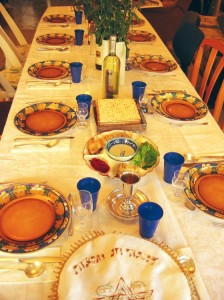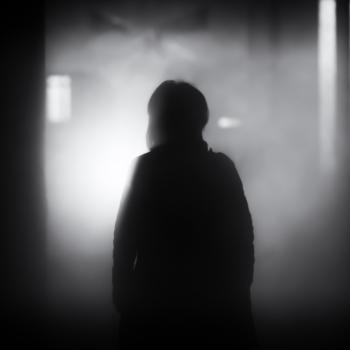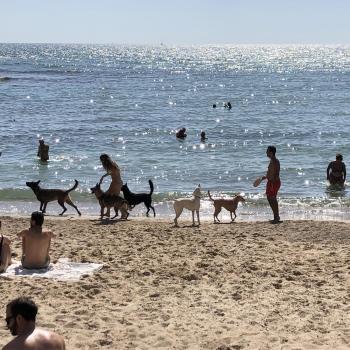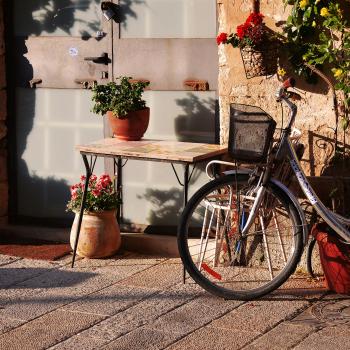 As I write this, Passover is just a little more than a week away. This year, the first night of Passover coincides with our son’s twenty-first birthday. I suspect that, instead of attending a seder (we floated the idea of his coming home from school to be with us for the first seder), he’ll be drinking a beer, his first…legal beer. That’s one loss for halakhah, Jewish ritual law (beer is clearly not kosher for Passover), and one gain for living within civil law.
As I write this, Passover is just a little more than a week away. This year, the first night of Passover coincides with our son’s twenty-first birthday. I suspect that, instead of attending a seder (we floated the idea of his coming home from school to be with us for the first seder), he’ll be drinking a beer, his first…legal beer. That’s one loss for halakhah, Jewish ritual law (beer is clearly not kosher for Passover), and one gain for living within civil law.
I don’t think the Passover narrative is of much interest to him, at least not insofar as it tells the story of the Jews. It may be of greater interest to him as it speaks to and inspires other peoples’ national liberation struggles. Still, my wife and I are fairly certain that he, like his sisters, enjoyed our playful, imaginative seders as he was growing up. Whether we celebrated them in our home or at the homes of our closest friends, we always sought creative ways of keeping the seder fresh and relevant.
Mah nishtana? what makes this night different from all others? the youngest at the table chant. After they finish chanting the traditional four questions, we share our own questions at this particular moment at this particular seder. Question, question, and keep questioning: that’s a Jewish value, embedded in the Passover seder. It’s one of the first things we teach our children: question everything.
And when, as they get older, their questions challenge us—what’s the deal with the Palestinians? Why is it always the first thing you ask, is she Jewish, is he, that poet, that politician, that victim of the latest shooting? What’s up with your primitive tribalism?—and reveal their troubled relationship to Judaism and Jewish culture, console yourself by remembering this: Adam (Hebrew for human, for person) is made of adamah (earth: adam, plus question: mah).
What is a human? That’s the first question. Who asked? How about the same Character who, in the garden, asks, Adam, where are you?
But we’re not in the garden, and there’s no getting back to the garden. We’re in Egypt now, and we’re bound for the desert, forty years in the desert (and, eventually—how long must we wait?— for the meal and the kosher-for-Passover desserts), but first it’s time for some plagues.
Blood, boils, locusts, slaying of the first born, we chant, dipping a pinky into the cup of wine and shaking one drop for each plague onto our plates as we go down the list, and then we call out more, adding the plagues of our time to the traditional list.
What will they be this year? Our state government determined to destroy North Carolina’s schools and disenfranchise the “ineligible,” “most dangerous,” vulnerable voters in the state? Our state government committed to ignoring science and relaxing or rewriting environmental regulations that claim to protect but actually threaten the environment—the environment in which business can thrive?
Since the Holocaust, we say, after the traditional curses, Auschwitz, Birkenau, Majdanek. Maybe on this Passover we should add some other names, maybe we should call out the name of our state budget director, the rose of North Carolina, Mr. Art Pope? And even if we don’t say it aloud, we’ll think, Adelson, Koch and Koch. (But isn’t Adelson good for the Jews? For one answer to that question, read Thomas Friedman’s recent column: “Sheldon: Iran’s Best Friend.”
As I write this, I feel helpless in the face of the power of these men and their poison money. Just saying—just thinking their names hardens my heart. Pharaoh! I’m Pharaoh!
But I don’t want to be Pharaoh! I want to be Moses!
Such chutzpah, such arrogance to think of myself and Moses in the same thought.
Says the haggadah: Look at the matzoh, that’s who you are: unrisen, lowly, bumpy, dry baked, brittle square of unleavened bread. Not even strong enough to hold egg salad between two pieces. Take a bite and the matzoh cracks and crumbles. That’s who you are. Forget about leading your people!
Angry, enraged, impoverished of spirit, frail boned, I am, and by the haggadah commanded: “in each generation, each person is obligated to see himself or herself as though he or she personally came forth from Egypt.”
Will I get there this Passover? Will the ritual of the Passover seder transport me back to Egypt? Will it lift me, tongue burned by the bitter herb, lips salted with the tears of spring, the tears of enslaved ancestors, heart hardened, and released on the wings of song—Dayenu, it would be enough; Had Gadya, one little goat—out of Egypt?
I don’t know. But I’m ready to give myself over to the process just to see what might happen this year.
And, dear son, dear daughters, for you I wish the same, a chance (by whatever means) to remember what it means to be enslaved, to be subject to the tyrannical vision of an Other, be it a politician, a billionaire, or a consumerist culture, and to see whatever system you are in clearly, and to participate in a process, Jewish or not, that will strengthen and inspire and lift you free so that you may be an inspiration, a source of strength and comfort and encouragement to others who are not yet free, others who become free and imprisoned, imprisoned and free, over and over again throughout the length of their nights and days.
Richard Chess is the author of three books of poetry, Tekiah, Chair in the Desert, and Third Temple. Poems of his have appeared in Telling and Remembering: A Century of American Jewish Poetry, Bearing the Mystery: Twenty Years of IMAGE, and Best Spiritual Writing 2005. He is the Roy Carroll Professor of Honors Arts and Sciences at the University of North Carolina at Asheville. He is also the director of UNC Asheville’s Center for Jewish Studies.










